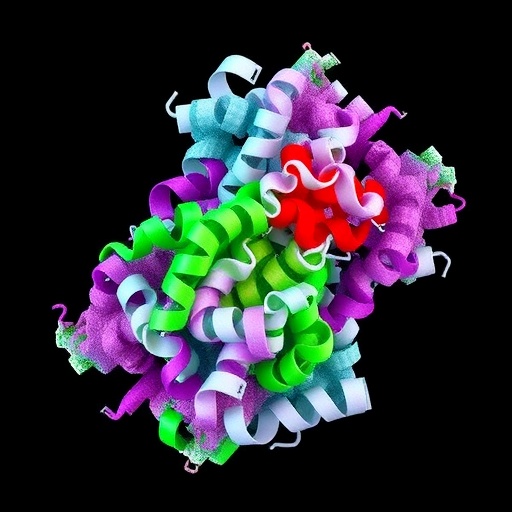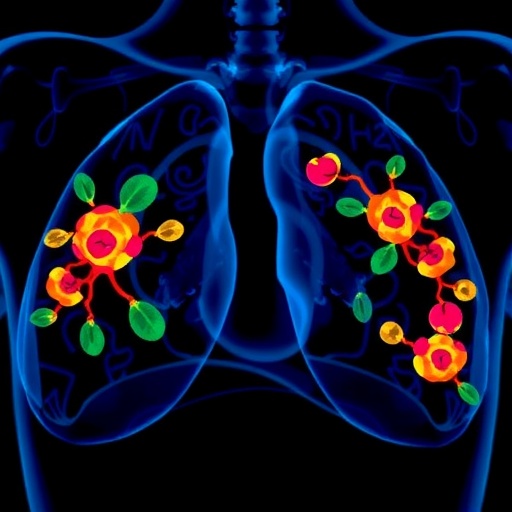
Recent advancements in diabetes management have heralded a shift in the therapeutic approaches available to clinicians and patients alike. Among the most promising innovations is the exploration of inhaled insulin therapies, specifically Technosphere® insulin, which presents a significant breakthrough in treating hyperglycemia, particularly during the postprandial state. This transformative approach aims to simplify the arduous process of managing insulin delivery while improving overall metabolic control.
Inhaled insulin represents a paradigm shift in diabetes care, a welcome alternative that addresses some of the common obstacles faced by patients administering traditional subcutaneous insulin. Patients often grapple with inconvenient injection schedules, variable absorption rates, and the psychological burden associated with daily needles. The inhaled formulation bypasses these hurdles by offering a non-invasive method that aligns more naturally with the physiological processes involved in nutrient absorption and utilization after meals.
A recent study conducted by a team of researchers, including Jacobson, Kaiserman, and Ulloa, has investigated the safety and efficacy of inhaled Technosphere® insulin specifically during the postprandial period. Their findings, published in Diabetes Therapy, shed light on crucial aspects of how patients might benefit from such a treatment when transitioning from conventional insulin regimens. By focusing on modified initial dose conversion strategies, the research opens up new avenues for optimizing individualized diabetes management.
The inhaled form of Technosphere® insulin utilizes a unique delivery system designed to reach systemic circulation without the need for invasive techniques. By employing a dry powder formulation, the device allows for rapid absorption into the bloodstream through the lungs. This delivery mechanism not only enhances the onset of action but also offers the potential for a more predictable pharmacokinetic profile, minimizing fluctuations in blood glucose levels post-meal.
Efficacy is paramount when considering any new treatment modality for diabetes management. In their pivotal study, the researchers noted that inhaled Technosphere® insulin demonstrated comparable glucose-lowering effects to those observed with traditional insulin therapies. It was particularly notable that participants who received the inhaled insulin reported efficient glycemic control following carbohydrate-rich meals, which is often a critical area of difficulty for many individuals living with diabetes.
Moreover, safety profiles for any new medication are scrutinized intensely, especially in the case of insulin therapies that have historically been associated with potential adverse effects. The authors of the study assured that the inhaled formulation was well-tolerated by participants, with minimal reports of hypoglycemia and respiratory complications. This finding is essential, as maintaining a high standard of safety can encourage greater adoption of innovative methods among both healthcare providers and patients.
Another intriguing aspect of the research is its implication for the initial dosing strategies of inhaled insulin. Traditionally, transitioning patients from conventional insulin injections to inhaled formulations can pose challenges in achieving appropriate dosage adjustments. The modified initial dose conversion proposed by the researchers seeks to mitigate this issue, allowing for personalized dosing strategies that are rooted in individual patient needs. This tailored approach underscores the broader trend towards precision medicine in diabetes care.
Accessibility remains a critical barrier in the widespread adoption of any new diabetes treatment. Patients and healthcare systems must weigh the costs and benefits of therapies that may initially seem promising. However, with the advent of inhaled insulin, researchers pointed out the potential for decreased costs over time due to fewer complications and enhanced adherence rates among patients who may prefer a non-invasive delivery option. As healthcare continues to strive for improved quality and decreased costs, innovations like Technosphere® insulin could play a pivotal role.
Further investigations into the long-term implications of inhaled insulin therapy are likely to develop as more data emerges on its extended use. Understanding the sustainability of this treatment in diverse patient populations, including those with varying degrees of insulin resistance and those who have difficulty managing their diabetes with conventional approaches, will be essential.
The integration of inhaled insulin into routine clinical practice may also necessitate new frameworks for healthcare professionals. Training and education around the use of inhalation devices and the necessary adjustments required for individualized patient care will become crucial. Proper guidance can lead to improved patient confidence, autonomy, and effectiveness in managing their diabetes, ultimately leading to better health outcomes.
As the field of diabetes management continues to evolve, innovative solutions such as inhaled Technosphere® insulin exemplify the commitment to fostering advancements that improve patient quality of life. The results from this recent study provide encouraging data that can pave the way for further exploration and refinement of inhaled therapies.
In conclusion, inhaled insulin represents a notable advancement in the management of postprandial glucose levels for individuals with diabetes. With research showing promising safety and efficacy, this method might revolutionize the way insulin is administered, leading to enhanced patient satisfaction and better glucose control. As this field continues to mature, the collaborative efforts of researchers, clinicians, and patients will undoubtedly shape the future of diabetes care.
Subject of Research: Efficacy and Safety of Inhaled Technosphere® Insulin During the Postprandial Period
Article Title: Safety and Efficacy of Inhaled Technosphere® Insulin in the Postprandial Period With Modified Initial Dose Conversion
Article References:
Jacobson, C., Kaiserman, K.B., Ulloa, J. et al. Safety and Efficacy of Inhaled Technosphere® Insulin in the Postprandial Period With Modified Initial Dose Conversion.
Diabetes Ther 16, 1695â1705 (2025). https://doi.org/10.1007/s13300-025-01760-5
Image Credits: AI Generated
DOI: https://doi.org/10.1007/s13300-025-01760-5
Keywords: Inhaled insulin, Technosphere®, diabetes management, postprandial glucose control, safety and efficacy, modified dosing strategies.
Tags: conventional insulin regimen transitiondiabetes management breakthroughsdiabetes therapy innovationsinhaled insulin safety and efficacyinsulin therapy advancementsmetabolic control in diabetesnon-invasive insulin delivery methodspatient experience with inhaled insulinpost-meal insulin strategiespostprandial hyperglycemia managementresearch on inhaled insulinTechnosphere® insulin benefits




